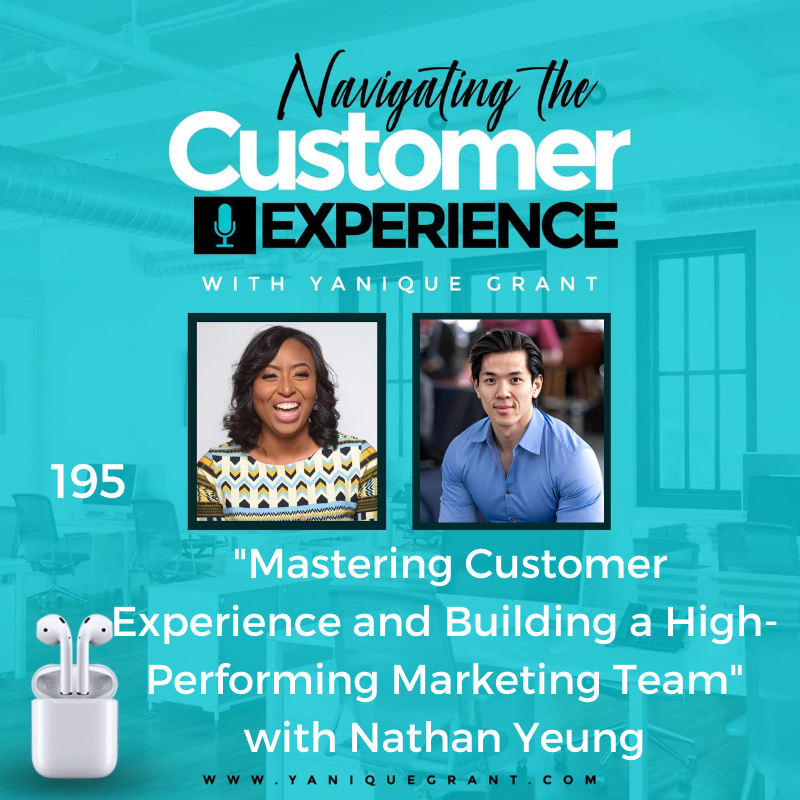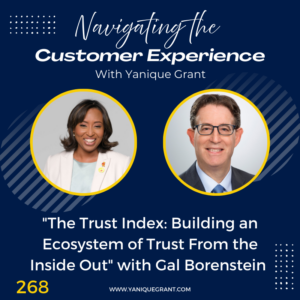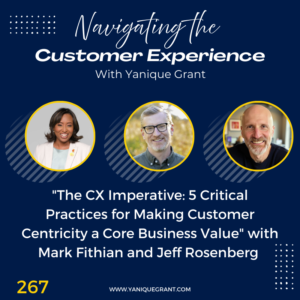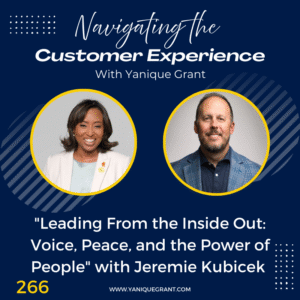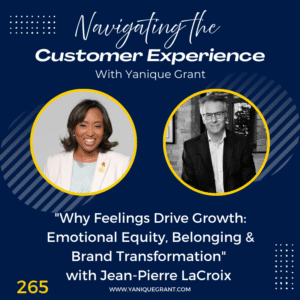Nathan Yeung is an experienced marketing strategist with over 10 plus years of expertise in advising B2B businesses. Throughout his career, Nathan has helped numerous companies build their marketing teams from scratch, delivering successful go-to-market deployments and launching new products into the market.
Nathan’s diverse background brings a unique perspective to the marketing world. Trained in marketing, he has also worked in finance and management consulting, providing him with a comprehensive understanding of business operations and strategy. Nathan’s ability to think outside the box has helped his clients to stand out in their industries, and his expertise has been recognized by numerous organizations over the years.
Questions
• Could you tell our audience a little bit about how you got to where you are today?
• Could you share with our listeners kind of how you advise your clients to kind of close that gap and make it a more seamless and frictionless experience for the customer?
• What are some things maybe three things that as a top marketer that you would advise your customers in terms of ensuring that they’re able to keep their existing clientele, and of course, attract new customers and still maintain a quality experience?
• Now let’s say our audience, they’re looking to build their marketing team from scratch, what are let’s say three or four qualities that you believe your team in marketing needs to possess in order to be successful?
• Could you share with our audience what’s the one online resource tool, website or app that you absolutely can’t live without in your business?
• Can you also share with us maybe one or two books that you’ve read, it could be a book that you read very recently or one you read a very long time ago, but it has had a very big impact on you.
• Can you also share with our listeners, what’s the one thing that’s going on in your life right now that you’re really excited about, either something you’re working on to develop yourself or your people.
• Where can listeners find you online?
• Do you have a quote or saying that during times of adversity or challenge, you’ll tend to revert to this quote if for any reason you got derailed, or you got off track, and this quote kind of just helps to get you back on track.
Highlights
Nathan’s Journey
Me: Now, we always like to give our guests an opportunity to share a little bit about their journey in their own words. So, could you tell our audience a little bit about how you got to where you are today?
Nathan shared that it’s a bit of a long journey. So, he originally went to school for entrepreneurship with a specialty in marketing. And afterwards, he actually ended up going into finance. So, it was a bit of a massive change. Managing conditions and kind of really making sure that the acquisition is transitioned, well, kind of synergies and managing sometimes moving the business model into completely different markets. And one of the things that I had fundamentally seen in almost every single one of his jobs and careers was how important marketing was, and also how he felt that he didn’t feel like marketing was really getting as much attention as it really needed.
And he often felt like a lot of the people who had the money or had the authority to make decisions really kind of didn’t appreciate marketing. And he thinks that came from a couple of different perspectives. One, he doesn’t think they quite understood marketing. And two, he thinks just in the sense of the pool of practitioners, he thinks the pool of the practitioners are quite small. And so, he thinks there’s a general under appreciation for marketing and that’s kind of one of the things that drove him to it, obviously, being trained. And even while doing all these jobs, he was always doing kind of marketing things on the side.
So, he’s always kind of enjoyed marketing, and kind of after his management consulting stint, he started Find Your Audience and really focusing on what he believes is what he calls it sustainable and practical marketing, and the very operational versus that of a typical creative shop.
Advise for a Seamless and Frictionless Experience for Customers
Me: So, can you share with our audience, based on your experience, you’ve been in this area for quite some time. And I do believe marketing is very much directly related to customer experience. One of my greatest pet peeves is organizations invest so much in getting the name out there, the brand out there, the image, the product and then when you actually have to interface with them, whether it be on the phone, or through their app, or through a website or face to face, what they’ve advertised in terms of what you’re getting and what was in the marketing, there is a totally different disconnect, there’s no correlation. So, could you share with our listeners kind of how you advise your clients to kind of close that gap and make it a more seamless and frictionless experience for the customer?
Nathan stated that that’s a great point. And he always talks about customer experience, because you’re absolutely right, it’s incredibly jarring for a lot of customers to go into a funnel, be sold on some particular benefits, then obviously purchase that product, and really not have a great way to experience those benefits in a seamless way. Therefore, really making that experience quite negative or some say you want things frictionless, this very having a lot of friction. He tells a lot of clients that when you sell something, the customer experience is directly correlated, obviously with retention and kind of the attrition rate of your customers. And it’s incredibly important for you to be as aligned as possible, but also as self-serving as possible to the customer in the sense of those benefits and making sure that they know how to experience those benefits, how are they going to get access to those benefits and how they can essentially get what they need to drive a successful outcome from that purchase from whatever that expectation is. And a lot of clients tend to overlook that because he thinks a lot of clients are very, very focused on just gaining that acquisition of a customer versus really making sure that they nurture that customer.
Me: Agreed. So, it’s all about the acquisition and not necessarily about the experience.
Nathan shared that the experience is an afterthought. And especially with newer companies, that’s very much the case, he thinks with more mature companies, you’ll see that they focus a little bit more on customer success teams. And those customer success teams, and product managers have an actual focus on that customer onboarding process to make sure that experience is great.
Keeping Existing Clientele and Attracting New Customers and Still Maintain a Quality Experience
Me: Now, let’s say if you could give our listeners maybe three things, we’re already halfway through 2023. And so, they’re looking on ensuring that they can continue to sustain the business that they already have and they’re looking to acquire new customers, what are some things maybe three things that as a top marketer that you would advise your customers in terms of ensuring that they’re able to keep their existing clientele, and of course, attract new customers and still maintain a quality experience?
Nathan shared that he thinks the number one thing is it sounds so simple, but he finds that a lot of clients don’t even do this is really in HR, there are these pulse surveys, and these pulse surveys are really to get a pulse of your employees. He thinks very much when you have customers, there should be a pulse survey for your customers. Some companies obviously, do this by annual NPS surveys, Net Promoter Score surveys, for those that don’t know what NPS means. But it is really just important to have a kind of a quarterly checkpoint with your customer and saying, “Hey, how are you doing, I really just wanted to call you today, is there anything that I can do differently?”
And this needs to be very clear, you have to say differently, because you don’t want to imply something negative or positive, you really actually just want to ask for their advice. And typically, if there’s anything different, that means it’s something that they probably want. So, he thinks really leading into that conversation with is anything that we can do differently is really, really important. And he thinks that’s a great way just to maintain relationships with your current clients, but two, to constantly get a great level of feedback on your current business, to ensure that you’re always keeping up that level of service or level quality that hopefully, you desire to have.
The second thing is you have to just respect that everyone is busy. That also means everyone’s quite lazy. And he doesn’t mean that in a negative way, he just means that in a kind of general human sense that humans tend to have a lazy factor to them, and you have to really handhold them through any activity. So, when you’re doing these surveys, when you’re doing these things, just know that it is not a priority for them. And that you have to be incredibly patient, and making sure that whether this is the survey you’re asking them to do, or it’s the onboarding process, don’t assume that they actually know what they’re doing. And be mindful to actually build out anything to help them understand what they need to do in order to get that outcome again.
And so, if it’s that survey, make sure that that survey is incredibly easy to do. If it’s a customer form, make sure that customer form has a loom video talking about how to answer the questions. If it’s an NPS score, again, also send them another loom video just showing what an NPS score looks like because they also maybe don’t want to go into a huge form, or survey and waste their time. So again, kind of have this humility in the sense that every one of your customers has a lot of things to do, they’re naturally lazy, that the best way you can get their attention is by making sure that you do everything you can to make sure that that expected journey is visible, and they know exactly what they’re getting into.
Qualities for Building a Marketing Team
Me: Brilliant. Those are really, really good points. Thanks for sharing, Nathan. Now let’s say our audience wanted to build out their own marketing team. They’re looking to build their marketing team from scratch, what are let’s say three or four qualities that you believe your team in marketing needs to possess in order to be successful?
Nathan stated that that is an incredibly difficult question. For anyone that’s listening, he’s going to preface this that marketing is incredibly complex right now. And they’re a firm that firmly believes that they do not prescribe solutions. And why this is really important to those three or four qualities that Yanique is mentioning, is because those three-four qualities really are dependent on your organization. And he knows that’s not a great answer, because he’s sure you guys want a simple solution. So, he’ll try to make it simple, but he’ll still preface that it is really going to be dependent on your situation.
So, one of the number one things that he thinks is difficult for a lot of businesses is content generation. And so, he feels like if you were to be forced into decision where you have to hire someone, or you’re really looking for someone to come in the organisation, find someone who actually has a lot of experience in content generation, and that can mean a lot of things. So, content generation could be social, content generation could be producing videos on Tiktok or reels on Instagram. Content generation could also mean the written form of content such as search engine optimization, and creating authority articles, authority blogs and things that really speak about your industry. He thinks that’s one core skill set that no matter the company, you’re going to get value from that.
The other thing that he thinks is really important is to find someone that maybe has some experience on brand. So, if you’re a B2C company, you’re really going to want someone who has a creative background with a bit of art direction, because when your B2C, creative plays a massive role and you standing out in the market.
Now, he will then take that back, that statement, saying that if you’re in B2B, while he does think having a creative background is incredibly important, probably what’s even more important than that in a B2B business is someone that’s a product marketer. And so, a product marketer is really going to be that person that’s going to help translate your services, solutions, packages, products into real tangible materials that are going to be benefit leading and can be brought to the market. So, they’re the ones that are going to really create all the assets required for you to be successful in selling your product into that market and they’re really hyper focused at doing that. They’re also hyper focused on getting customer feedback, and making sure that that feedback loop is actively going into your marketing materials, and addressing any of those pain points and friction points that your customers are having.
So, it’s a long-winded answer so he’ll make it simple. Again, content, if you just want to be general, find someone with great content experience, that’s going to pay you some dividends. And if you’re a little bit more of a complex business, he would recommend first prioritising what you’re doing, then kind of finding an individual who has those qualities.
Me: Okay, so your answer kind of piqued my interest a little. And I’d like to dig a little bit further as it relates to content generation. So, let’s say I have somebody internally in the organization already who has some shown a little bit of potential as it relates to marketing. They don’t have a lot of experience in content generation, but I see potential for them to be able to be strong in that area. Are there certain things that someone can do to become a better content generator?
Nathan shared that he thinks the best way for them to become the best content generator is really to focus on first, what form of content right. And the first question before you go down that route is you have to ask yourself is that form of content generation, the form that is going to be the most influential for your business. So, for a lot of people, they’ve jumped on the bandwagon of like search engine optimization, and search engine optimization in particular, businesses make sense, because the traffic numbers in the search numbers make sense.
If you’re in a hyper focused niche type of product or service, you may not actually get a lot of benefit from doing SEO. So, you might be more interested in doing like videos, or reels or a podcast, for example. And so really, it’s first, let’s focus on what asset do we actually need to create content for and make sure that’s first aligned. And if you think that person has the capabilities to do that particular type of content and asset, then let’s go ahead and figure out what that looks like.
Now, for them to get better at that, it would be simply it’s doing research into what the market is looking for, right? The reality is, is that he hates to say this, because he thinks it’s like an overplayed thing, you want to go viral, like that’s the ideal thing.
If you have a great article that goes viral, that’s fantastic.
If you have a great reel that goes viral, that’s fantastic.
If you have a great video on YouTube that goes viral, that’s fantastic.
We’re all looking for that virality.
And so, the game plan for that content person is really, okay, so I’m good at this type of content, this type of asset for this type of channel, let’s go find out what are people really interested in this space, and really just looking at those hashtags, looking at those influencers that are doing well and trying to identify trends in what they’re doing, and creating a small framework to create that content.
There is no perfect former all for virality, there is to a certain extent, if you want to do really outlandish thing, like give out a million dollars to people randomly on the street, that’s easy, but no one has that kind of money all the time.
So, he thinks having that person just do that research in the specific channel and understanding their market and then trying to copy that and he knows that sounds terrible, but they have to learn, so he would suggest just copying that content.
And then more importantly, he thinks the number one thing is getting efficient at content generation. He thinks content generation itself is easy, being incredibly efficient is actually the hard part.
So, can that person learn to create 12 to 15 pieces of assets in an hour? And if they can, that’s amazing, that’s fantastic, that’s incredibly valuable. You don’t want this person creating one piece of content a day, that’s not going to be effective for any business.
So, one, figure out, does whatever the content match your market. Two, have them research whether or not you can actually create content efficiently and effectively for that market. And then three, optimize the living crap out of that operational process so that that person can produce as much content as possible.
App, Website or Tool that Nathan Absolutely Can’t Live Without in His Business
When asked about an online resource that he can’t live without in his business, Nathan shared that everyone’s going to hate this but he’s going to say ChatGPT. So, he’s going to say that, he’s going to stop there, because everyone’s going to roll their eyes and say, “Good, great.” So, ChatGPT, obviously, please use it.
Now, he’ll actually provide a much better source. I have Sunday Product Hunt Days. And people go well, what does that mean? It means every Sunday, he goes to www.producthunt.com and he looks at the latest listings. And the reason he looks at those latest listings is because these are all bootstrapped entrepreneurs creating mini SAAS products, solving mini problems. And it’s a great way one, for you to find new SAAS products that could obviously benefit your business.
But two, it’s also kind of an indication of the pain points in the market. Generally speaking, these entrepreneurs who are bootstrapped, who are producing these things are actually solving a pain point. There’s another question of whether or not that pain point is large enough for it to be a lucrative business. But regardless, it’s a pain point. So, going on product on every Sunday, reviewing the latest releases for the week, it’s kind of a great way for you to get a feel of the market, but two, it’s also a great way for you to find new SAAS tools that no one knows about that you can use to benefit your organisation.
Me: Okay, I’ve never heard of that strategy before. And I’m sure our listeners will be impacted in a positive way from that strategy, because I’m definitely going to try this Sunday for sure.
Nathan stated that it’s lovely, you learn not only is it a bit of like a new centre, too, because a lot of these bootstrap entrepreneurs are using the latest API’s, the latest generative AI things, the latest language models. And so, you’ll end up learning just from reading the descriptions what they’re doing, that will also keep you up to date with kind of the latest and greatest things too.
Books that Have Had the Biggest Impact on Nathan
When asked about books that have had a big impact, Nathan shared that one of the his favourite books by far has been Scaling Up: How a Few Companies Make It…and Why the Rest Don’t (Rockefeller Habits 2.0) by Verne Harnish. Scaling Up is really a beautiful book on how to scale your business. And for any of those listeners right now that are thinking about scaling up your business, he recommends it, like absolutely hands down. If you’re looking to build your business, look and read at Scaling Up, the book fundamentally just changed how much he really thought about structure. And as much us entrepreneurs love the idea of having kind of a very flat and horizontal organization, the reality is that scale creates problems.
And when you have scale, you have to have structure. And if you don’t have structure, you really can’t scale particular parts of your function because the reality is that there’s just a certain point where you actually really need to have somewhat hyper focus doing only a portion of that operational process.
So, that book really aligned his thinking on what is required to build and sustain a scalable business. And two, it just gave him a lot of frameworks to help build his own organization, they’re at 25 employees, they grew from 14 employees in just like less than 6 to 7 months. And if you think that having more employees is going to be possible in a horizontal manner, he can say absolutely good on you. But you’re going to have a lot of leaks. So, highly recommend that book, he’s read it multiple times, he’s shared it with his business friends. And so, he would recommend taking a look and lucky enough, you have a digital, you have audible, you have the paper book, you can get whatever version you want, it’s got great exercises, and it’s really going to broaden your perspective on thinking big.
What Nathan is Really Excited About Now!
When asked about something that he’s really excited about, Nathan shared that what he’s really, really excited about right now is he’s a little bit of a like coder in the back end. And he loves creating small little apps for himself. For those listeners, it has never been easier for you to create small tools for yourself. And if you haven’t learned to code at all, that’s okay, it’s not that difficult, it is certainly a time investment. But he would really recommend taking a look at some Python courses, and utilizing ChatGPT, or any other generative AI tool to help you generate code because it’s never been easier for you to automate random things that are kind of important to you.
For example, he has a little script that kind of does product research for him. And so, what he does is, if he’s looking to buy maybe the latest camera, or the latest ring light, or the latest headphones or earbuds, he simply has ChatGPT just kind of go out into the internet and produce him a summary. So, think about it as on the call Coles notes for literally everything you want in life, you want to know the best baby bottle, it’ll do the research for you, you want to know the best soda stream, it’ll do the research for you.
And you can really do this for any part of your life, and you can do it now in a fraction of the time. So, he thinks that’s the one really fun thing is actually creating these mini apps for himself, and getting a bit more proficient at that because it really is a time saving activity.
Where Can We Find Nathan Online
Website – www.findyouraudience.online
Instagram – @fya.marketingbytes
LinkedIn – Nathan Yeung
Quote or Saying that During Times of Adversity Nathan Uses
When asked about a quote or saying that he tends to revert to, Nathan shared that he has so many quotes. One of the most recent ones, and he learned this from one of his clients who had faced an unfortunate event, he’s a very, very smart man, he mentioned that his wife was going through something quite ill and he had no control over it. And he was very upset, and he dealt with that for many years.
And one of the things that is really important is, “You can’t control outcome, you can only control process.” So, this idea of going into conversations with this negative feeling, this negative energies is really not required, you can only control what you’re doing towards that conversation, you can’t actually control the outcome of that conversation, you’d like to think you can, but you can’t.
And so, letting go of that control, which is honestly a very much like an ego thing, it’s almost, someone could say ego death is just realizing you can’t control, can’t control everything in the world and letting go of control is definitely one thing that he’s certainly still learning but it’s something that he has to kind of really lean into in tough times in the business.
The second one that he has also from the same dinner that he heard was, “The grass is greener only where you water it.” And so, there’s a long folktale behind that. And you guys can probably find that online. But it’s very much on the standpoint that we always like to think the grass is greener, but the reality is, is the grass is only greener where you water it. So, the grass is greener and the folktale behind that has two meanings. One is obviously sometimes you forget to see the grass that you have watered. But two, he thinks in the more nuanced new age perspective is it is only going to be greener if you focus on it. So, he thinks both of those things are really important and he thinks that’s important just for your day-to-day activities, but also for your business.
Me: So, we just want to say thank you. Thank you so much, Nathan for taking time out of your very busy schedule to hop on this podcast with us and have this awesome conversation about marketing and how it’s connected to customer experience and why it’s important for us to ensure that we’re looking at the entire process, the journey of the experience, not just selling or marketing the product or service, but also ensuring that our customers have a seamless experience, a frictionless experience.
And of course, the qualities that you shared with us as it relates to ensuring that we have the right people on our marketing team, depending on our organization type. So, the conversation was great, the information was great and totally insightful. I know I gain a lot from it, and I’m sure our listeners will gain a lot from it when it is released. So, thank you so much.
Please connect with us on Twitter @navigatingcx and also join our Private Facebook Community – Navigating the Customer Experience and listen to our FB Lives weekly with a new guest
Links
The ABC’s of a Fantastic Customer Experience
Grab the Freebie on Our Website – TOP 10 Online Business Resources for Small Business Owners
Do you want to pivot your online customer experience and build loyalty – get a copy of “The ABC’s of a Fantastic Customer Experience.”
The ABC’s of a Fantastic Customer Experience provides 26 easy to follow steps and techniques that helps your business to achieve success and build brand loyalty.
This Guide to Limitless, Happy and Loyal Customers will help you to strengthen your service delivery, enhance your knowledge and appreciation of the customer experience and provide tips and practical strategies that you can start implementing immediately!
This book will develop your customer service skills and sharpen your attention to detail when serving others.
Master your customer experience and develop those knock your socks off techniques that will lead to lifetime customers. Your customers will only want to work with your business and it will be your brand differentiator. It will lead to recruiters to seek you out by providing practical examples on how to deliver a winning customer service experience!
The ABC’s of a Fantastic Customer Experience Webinar
Register Here


